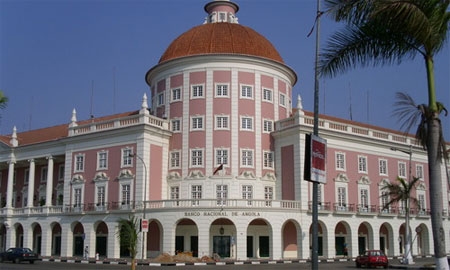The years since the end of the conflict have seen the growth of a banking sector in Angola that is now also in an excellent position to contribute to the country’s economic expansion.
That expansion has in turn helped boost bank assets and profit. From 2006 through 2008, for example, banking assets increased at an annual average rate of close to 50%, from $17 billion to $35 billion, according to the Angolan Association of Banks, or ABANC, a group whose membership had grown to 20 lenders by the middle of 2010.
Angola’s biggest banks include Banco Espirito Santo Angola, Banco Africano de Investimento, Banco BIC and Banco de Fomento Angola, and together with the other members of ABANC and with the help of the country’s rapid economic growth, they have become big enough to make Angola the third-biggest banking hub in Africa after South Africa and Nigeria.
“Since 2003, Angola has had very strong growth of its gross domestic product,” says Alvaro Sobrinho, BESA’s CEO. “The inflation rate also fell, which added to Angola’s positive economic growth from 2004. Interest rates fell, as well, and that meant cheaper credit rates for borrowers.”
Angola’s banks have been investing part of their earnings in information technology, to provide lenders with a modern network capable of carrying out financial transactions throughout the country. Advances in the network have permitted banks to start offering services such as credit cards, starting in 2007, and debit cards and other modern banking products.
Mr. Sobrinho’s BESA is the Angolan bank with the most advanced information technology, after a $35 million investment in a system provided by a company controlled by Oracle. The I-Flex technology is used on stock exchanges around the globe and by many of the world’s biggest banks.
All the growth and investment at Angola’s financial institutions haven’t come without some bumps in the road, of course. The global economic crisis in 2008 and 2009 affected Angola as well, bringing GDP growth to a halt here in 2009.
Even with the economy stagnant in that year, Angola’s banks made it through the crisis with little difficulty, thanks to the wise supervision of the country’s central bank, and the solid financial footing of the banks themselves.
“Banks in Angola are good, solid and without problems of profitability, and they were not leveraged,” says Mr. Sobrinho. “It was the pure traditional banking system plus the measures taken by the Central Bank, namely the compulsory reserves increase” that helped avoid any problems at banks.
By last year an improvement began, with an expansion of GDP of about 4% and a brightening outlook. The Economist Intelligence Unit forecasts an average annual growth of 7.4% over the next five years, while the Angolan government foresees growth of 7.6% this year and 15.5% next year.
Now the question is what challenges do Angolan banks face as they prepare for a future with an increasingly sophisticated, modern and globally integrated economy. One sign of that integration was the classification last year of Angola’s sovereign risk by ratings companies Moody’s, Standard & Poor’s and Fitch.
The improving situation is sure to attract the interest of foreign banking groups. Local banks will now have to be faster and more efficient to be able to compete effectively, and to carry out their role of allocating financing within the Angolan economy to help fund further growth.
Given their track records of strong growth and their solid balance sheets, the country’s financial institutions are ready to continue providing steady increases in profit and assets, and are well prepared to face head-on the many challenges the future holds for them.

0 COMMENTS